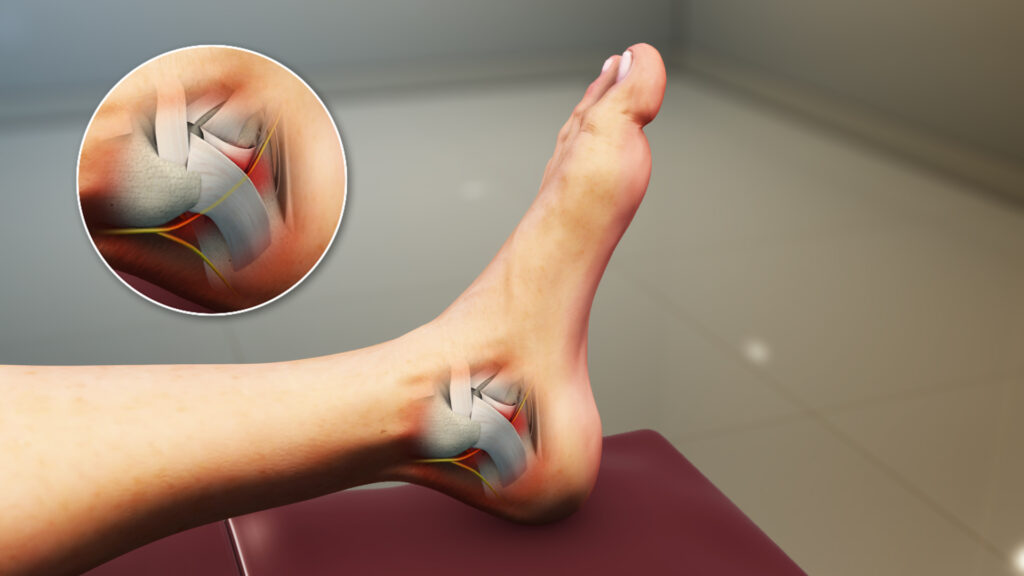Is your Tarsal Tunnel pain getting on your nerves? Here are some facts about Tarsal Tunnel Syndrome
What is Tarsal Tunnel Syndrome (TTS)?
Tarsal Tunnel Syndrome is a condition in which excessive pressure is placed on the posterior tibial nerve as it passes around the inside of the ankle. This results in neurological pain and symptoms in the foot. It can lead to alterations in sensation and movement of the foot, ankle, and lower leg. It can affect people of all ages.
Tarsal tunnel syndrome is similar to carpal tunnel syndrome, which occurs in the wrist. Both disorders arise from the compression of a nerve in a confined space.
Symptoms of Tarsal Tunnel Syndrome
Patients with tarsal tunnel syndrome experience one or more of the following symptoms:
- Tingling, burning, or a sensation similar to an electrical shock
- Numbness
- Pain, including shooting pain
Symptoms are typically felt on the inside of the ankle and/or on the bottom of the foot. In others, it may extend to the heel, arch, toes, and even the calf also.
Causes of Tarsal Tunnel Syndrome
It is caused by anything that produces compression on the posterior tibial nerve, such as:
- A person with flat feet is at risk for developing tarsal tunnel syndrome, because the outward tilting of the heel that occurs with “fallen” arches can produce strain and compression on the nerve.
- An enlarged or abnormal structure that occupies space within the tunnel can compress the nerve. Some examples include a varicose vein, ganglion cyst, swollen tendon, and arthritic bone spur.
- An injury, such as an ankle sprain, may produce inflammation and swelling in or near the tunnel, resulting in compression of the nerve.
- Systemic diseases such as diabetes or arthritis can cause swelling, thus compressing the nerve.
Also, it can be the result of overuse of the foot/ankle. You’re more likely to develop TTS if you exercise strenuously or frequently.
So it is very important to seek early treatment if any of the symptoms of tarsal tunnel syndrome occur. If left untreated, the condition progresses and may result in permanent nerve damage. In addition, proper evaluation is essential so that a correct diagnosis can be made and appropriate treatment initiated since the symptoms of tarsal tunnel syndrome can be confused with other conditions.
We can provide treatment protocols for you and get you back on track. ✅
Schedule an appointment here or you may call us at 44 (0) 207 101 4000. 📞
We hope you have a loveLEG day! 👣☀️
-The Chelsea Clinic and Team




